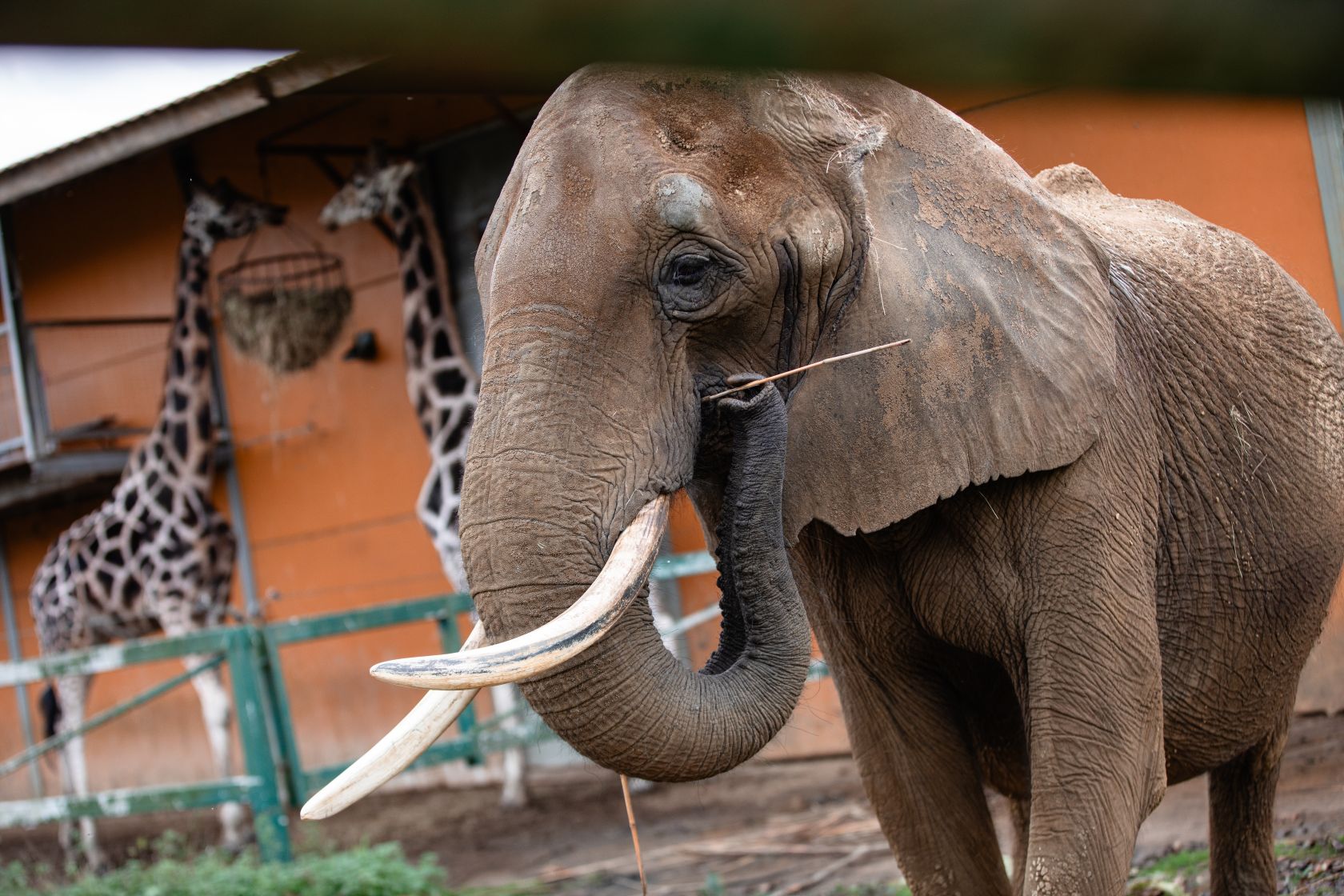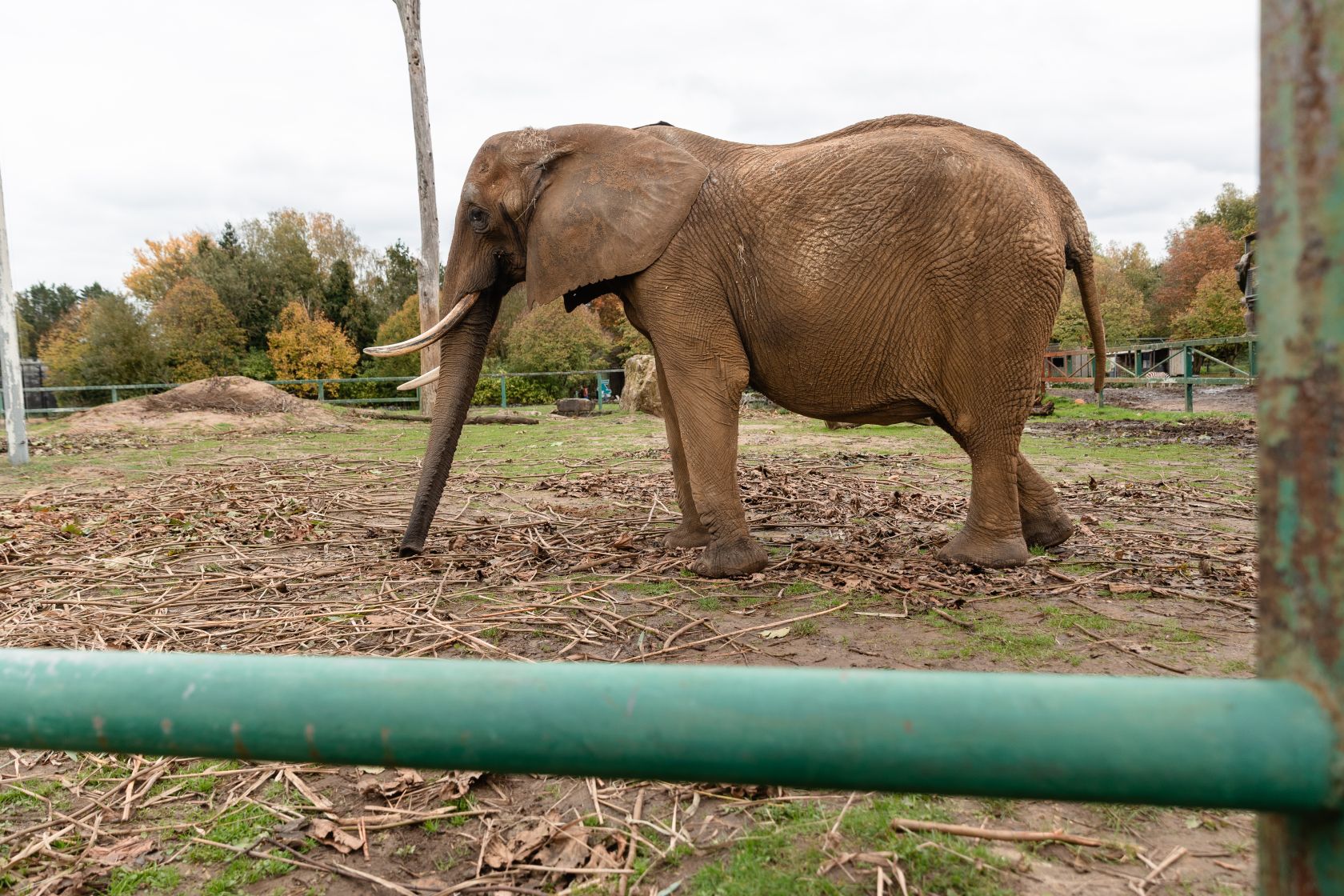The Long Journey to Pangea
Kariba’s story began in Zimbabwe in the mid-1980s when her family were killed during a government-sanctioned cull. She was captured as a young calf and flown to a zoo in Germany, initially accompanied by another orphaned female. Just two years later, the pair were separated when Kariba was transferred to the Netherlands.
In 2012, she moved to Olmense Zoo in Antwerp, Belgium, where she formed a close bond with Jenny, an African elephant retired from the circus. When the zoo came under new management in 2019, it was renamed Pakawi Park, with a renewed commitment to improving animal welfare.
When Jenny sadly passed away in 2022, Kariba was left completely alone. Recognising that elephants are deeply social beings who suffer in isolation, Pakawi Park began looking for a better long-term home. With the support of Belgian NGO GAIA, the zoo was introduced to Pangea, and together the three organisations have been working together So make Kariba’s relocation possible.

“We have cared for Kariba for over 13 years, and she will be hugely missed,” said Tommy Pasteels, Director of Pakawi Park. “But we couldn’t see her alone any longer. We believe she can have the best possible quality of life at Pangea, with space to be an elephant again and the companionship of others.”
Life at Pangea
After four decades in captivity, Kariba will live out her days in the rolling hills of Alentejo. While she can never return to Zimbabwe, Pangea’s team aims to give her the next best thing, with a life that mirrors the rhythms of the wild.
The sanctuary’s design has been guided by leading elephant specialists, including experts from some of the world’s most respected sanctuaries, as well as zoologists and field biologists who study wild elephant behaviour. A state-of-the-art barn will provide a secure space for health checks, training, and refuge during colder nights, while the surrounding enclosures offer acres of natural habitat to explore. She will also receive expert daily care from carers and the resident veterinarian.

Welfare comes first at Pangea. The sanctuary will not be open to the public, ensuring a calm and natural environment for the elephants. However, occasional community and donor open days will allow visitors to see the project’s progress, and plans are underway for an off-site Discovery Centre that will share stories of the elephants and promote education.
A growing family
It won’t be long before other elephants will join her. Priority will be given to those living in isolation, elephants from circuses in countries where the use of wild animals has been banned, and individuals in struggling zoos or cases where governments wish to intervene and rehome.
Kariba’s story reflects Pangea’s collaborative approach — working with facilities like Pakawi Park that want the best for their elephants and understand their complex emotional and social needs.
How you can help
With the first barn and enclosure at Pangea nearing completion, funds are now urgently needed to support Kariba’s transport and transitional care. You can be part of her journey by contributing to the appeal at www.pangeatrust.org/TPNappeal. All donors will have the option to enter a draw for a VIP visit to the sanctuary once Kariba has safely arrived.














